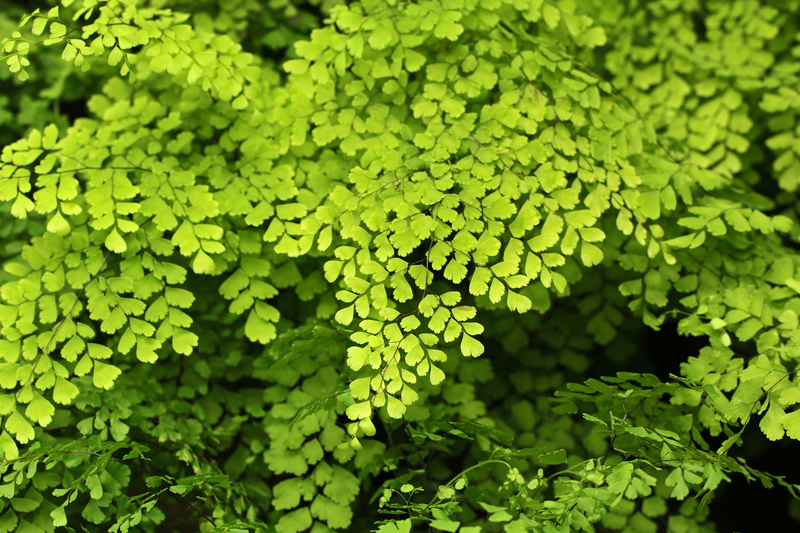Guard Your Garden: Expert Advice for Cold Weather
Posted on 08/06/2025
Guard Your Garden: Expert Advice for Cold Weather
Cold weather can be both a blessing and a challenge for garden enthusiasts. On one hand, the dormant season allows certain plants to rest and prepare for a vigorous spring; on the other, frost, snow, and freezing winds threaten to undo months of your hard work. That's why it's crucial to be proactive and learn how to guard your garden against the harsh realities of winter. In this comprehensive guide, we'll share *expert advice* to help you protect your outdoor oasis as temperatures plummet.
Why You Need to Protect Your Garden in Cold Weather
The landscape may look tranquil under a layer of frost, but beneath the surface, your plants and soil face several threats. Understanding why cold weather protection matters is the first step toward a thriving garden all year round.
- Freezing temperatures can rupture plant cells, causing wilt and death.
- Frost can damage tender leaves and flowers, especially in unprepared plants.
- Winter winds can dry out soil and strip moisture from plant tissues.
- Snow accumulation may break branches and compress delicate shrubs.
Taking precautions early enables your garden to weather the cold and bounce back come spring.

Assessing Your Garden's Cold Weather Risks
Every garden is unique. Climate, location, and the types of plants you grow all influence how you should protect your outdoor space. Start by conducting a thorough assessment:
- Locate microclimates - Are there spots more exposed to wind or frost? Identify sheltered areas as well as trouble spots.
- List vulnerable plants - Young, exotic, or less hardy species often need extra care.
- Monitor weather patterns - Use long-range forecasts to predict extreme cold spells and prepare accordingly.
Once you've underlined your garden's vulnerabilities, you can take targeted action for superior protection.
Top Strategies to Guard Your Garden in Winter
Protecting your garden during cold weather isn't just about reacting to the first frost; it's about preparation, good practices, and employing protective measures before severe weather strikes. Here's how the experts recommend you guard your garden in the cold:
1. Mulching for Insulation
Mulch acts as a natural blanket for garden beds. Adding a thick layer of mulch--such as straw, shredded leaves, or bark chips--helps moderate soil temperature and shields roots from freezing. For best results, apply 2-4 inches around trees, perennials, and in vegetable beds.
2. Covering at-risk Plants
Tender and semi-hardy plants often require extra protection. Use garden fleece, burlap, or frost cloths to provide an extra layer. Drape covers loosely, ensuring they reach the ground to trap earth's warmth. For small plants, cloches and cold frames offer excellent defense against frost.
3. Watering Wisely Before a Freeze
Moist soil retains heat more effectively than dry soil. Water deeply before the arrival of a hard freeze, especially for newly-planted trees and shrubs. Avoid watering immediately before nightfall, as this can increase the risk of ice forming on leaves.
4. Protecting Container Plants
- Move pots to sheltered locations, such as against house walls or inside sheds and garages.
- Group containers together and wrap them in bubble wrap, hessian, or insulating materials.
- Elevate pots off cold ground with pot feet or bricks to enable drainage and minimize frostbite.
5. Pruning Cautiously
Pruning stimulates growth, which is dangerous on the cusp of cold weather. Hold off major pruning until late winter (for most plants) or early spring. Remove only dead or diseased branches that could break under snow load.
Specialist Tips for Different Garden Types
Vegetable Gardens
- Plant cold-hardy vegetables (like kale, spinach, and broccoli) for an extended season.
- Consider installing row covers or low tunnels for extra insulation and easier harvesting.
- Harvest root vegetables before a hard freeze or heavily mulch them for in-ground storage.
Flower Beds
- Deadhead annuals and remove spent foliage to reduce disease risk.
- Leave seed heads on some perennials; they provide winter interest and food for wildlife.
- Plant spring bulbs in the fall, as many require chilling to bloom beautifully.
Lawns and Grasses
- Keep off frozen or muddy lawns to prevent compaction and root damage.
- Cut grass slightly higher for its last autumn mow to protect the crown from frost.
- Rake leaves for decomposing in compost rather than leaving them to smother the grass.
Fruit Trees and Shrubs
- Apply mulch around the base (keeping it away from the trunk) to protect roots.
- Wrap tender young trees in burlap or spiral guards against frost and critters.
- Check ties and supports to ensure branches aren't constricted by snow and ice.
Advanced Cold Weather Protection Techniques
Creating Windbreaks
Wind can be more damaging than cold alone. Erect temporary barriers of burlap, reed screens, or fencing on the windward side of your garden. In some gardens, permanent hedges or rows of evergreen shrubs provide both shelter and beauty year-round.
Building a Greenhouse or Cold Frame
If you're serious about gardening through winter, investing in a greenhouse or constructing a cold frame grants enormous flexibility. Even a simple DIY plastic tunnel offers enough warmth to overwinter many vegetables and propagate cuttings.
Utilizing Thermal Mass
- Place large stones, water barrels, or brick walls near planting areas. During the day, these materials absorb heat, then release it at night, moderating nearby temperatures.
- This technique can guard your garden from rapid temperature drops--especially useful for patio containers or sensitive beds.
Common Mistakes to Avoid When Protecting Your Garden
- Applying mulch too early: Wait until after the ground has frozen to avoid attracting pests.
- Overwatering: Waterlogged soil can kill roots in colder conditions--moderation is key.
- Sealing covers tightly: Plants still need airflow to prevent mold and rot under covers.
- Neglecting container plants: Pots freeze faster than the ground--never overlook them!
How to Monitor and Respond to Changing Conditions
Cold weather is unpredictable, and protecting your garden means staying informed:
- Install a min-max thermometer to track local temperature extremes.
- Check forecasts for sudden cold snaps or wind chill advisories.
- Inspect covered plants after storms and adjust as necessary.
A truly guarded garden is monitored, not just mulched--stay proactive!
Wildlife and Your Garden During Cold Weather
While you protect your plants, remember local wildlife may be seeking shelter and food too.
- Leave some leaf litter and seed heads for birds and beneficial insects.
- Install bird feeders and water sources just outside covered beds.
- Avoid using chemicals--birds and mammals are particularly vulnerable during winter months.
Winterizing Tools, Hoses, and Garden Structures
Your plants aren't the only things needing care--*safeguard your gardening essentials* as well:
- Drain and store hoses to prevent cracking in freezing weather.
- Sharpen and oil pruners, shears, and spades before storing indoors.
- Inspect sheds and fences for repairs; strong winds and snow load will test all structures.
Planning Ahead: Preparing for Next Winter
The best cold weather gardeners aren't just responsive--they're visionaries. As winter progresses, take notes:
- Record which plants suffered, which thrived, and what techniques worked well.
- Order seeds and supplies early for spring and fall planting.
- Consider restructuring beds or adding new windbreaks before next winter arrives.

Frequently Asked Questions--Guard Your Garden in Cold Weather
- How can I tell if my plants are truly hardy?
Check plant tags for USDA Hardiness Zone ratings, or consult local garden centers for regionally-adapted varieties. - Should I fertilize in late fall or winter?
In most climates, avoid high-nitrogen fertilizers in late fall--they encourage growth that can be damaged by frost. Opt for potassium-rich feeds if needed. - Is snow always bad for gardens?
Not necessarily! A light layer of snow acts as insulation, but heavy, wet snow can cause breakage--so gently brush branches after storms. - What about compost piles?
Continue to add to your compost heap as long as temperatures allow. Turn the heap occasionally; winter decomposition is slow, but organic matter still breaks down.
Conclusion: Protecting Your Garden is an Ongoing Commitment
Guarding your garden against cold weather is both an art and a science. With thoughtful preparation, flexible responses, and ongoing care, you can minimize winter damage and lay the groundwork for lush spring growth. From strategic mulching and plant selection to building windbreaks and monitoring forecasts, every action you take now helps ensure your garden not only survives but thrives, whatever the weather brings.
Remember, nature is resilient, and so are you. Stay vigilant, keep learning, and enjoy the quiet beauty winter brings to your landscape. Your efforts today are an investment in tomorrow's garden blooms!
Guard your garden--because every season has its wonders, and every plant deserves a chance to shine.



